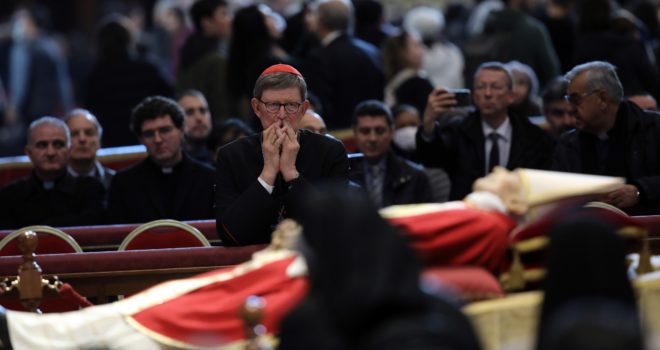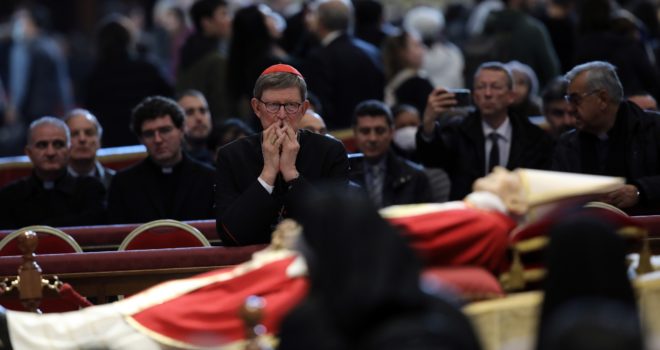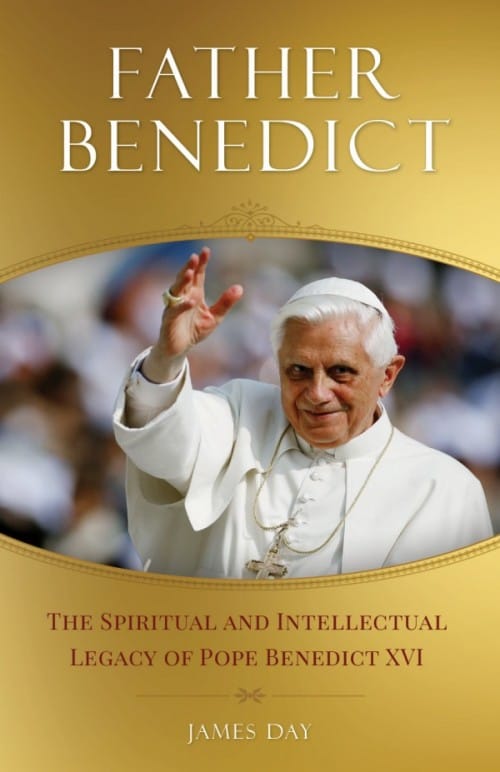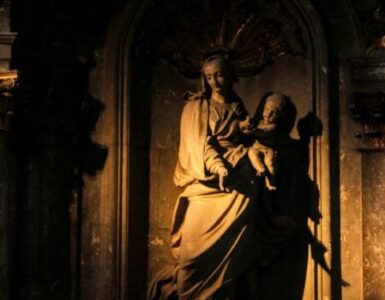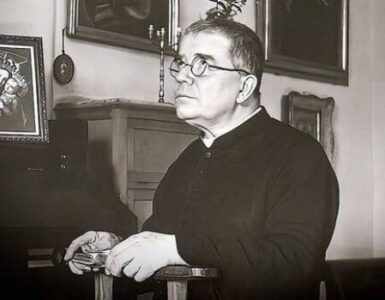Editor’s note: In commemoration of the recent death of Pope Benedict XVI, Catholic Exchange is issuing a series of reflections on some of his most monumental encyclicals, excerpted from James Day’s 2016 book Father Benedict:The Spiritual and Intellectual Legacy of Pope Benedict XVI.
Pope Benedict XVI also considers the Last Judgment as key to understanding Christian hope. While it is only right to receive a just account of one’s life—the doctrine of particular judgment—hope in the unconditional love of God leads one to pray for both compassion and consolation when facing final judgment: God’s “mercy endures forever” (cf. Ps. 136). However, “Christ’s mercy is not a grace that comes cheap, nor does it imply the trivialization of evil.” Belief in the Last Judgment coincides with anticipating the Kingdom of God: it is not something to be feared, but is lived in hope because “in hope we were saved.”
We who have lived in justice and truth can expect to be met with that same justice and truth in death. Still, Benedict acknowledges the difficulty the majority of people face in forging an authentic life: “Much filth covers purity, but the thirst for purity remains and it still constantly reemerges from all that is base and remains present in the soul. What happens to such individuals when they appear before the Judge?” The Pope does not shy away from the image of passing through fire, quoting a startling passage from Paul: “Now if any one builds on the foundation with gold, silver, precious stones, wood, hay, stubble—each man’s work will become manifest; for the Day will disclose it, because it will be revealed with fire” (1 Cor. 3:12–13). But then, as we have seen in this study on hope and love, although we may have to pass through the fire revealing the truth of our character, it can only be the fire of God we encounter, and thus the fire not of wrath but of mercy—the fire of love.
This encounter with him, as it burns us, transforms and frees us, allowing us to become truly ourselves. All that we build during our lives can prove to be mere straw, pure bluster, and it collapses. Yet in the pain of this encounter, when the impurity and sickness of our lives become evident to us, there lies salvation. His gaze, the touch of his heart heals us through an undeniably painful transformation “as through fire.” But it is a blessed pain, in which the holy power of his love sears through us like a flame, enabling us to become totally ourselves and thus
totally of God.
At the World Meeting of Families in 2012, Pope Benedict recalled his childhood when prompted by a seven-year-old girl with her family from Vietnam. Even in the devastation wrought by the Nazi regime and in the aftereffects of the war, “the mutual love that we shared, our joy, even in simple things, was so strong that it enabled us to endure and overcome these things,” Benedict recalled, linking simple and little things as an expression of warmheartedness.
“And so we grew up convinced that it was good to be human, because we saw God’s goodness reflected in our parents and our brothers and sisters.”
And given his future retirement and life of solitude that would follow his time as successor of Saint Peter, Pope Benedict disclosed to the gathered couples and families a personal, moving hope: “When I try to imagine what Heaven will be like, I think it must be like the time when I was a small boy. In this environment of trust, joy and love, we were happy, and I think that Heaven must be rather like those early years. So in a way, I am hoping to return ‘home’ when I leave ‘for the other part of the world’.”
“May you see your Redeemer face-to-face,” imparts the prayer for the dying. Benedict XVI shows us that although living out faith, hope, and love is not without its challenges, its reward is Someone who has been waiting for us all along. We are home.
Image by Marco Iacobucci Epp on Shutterstock


